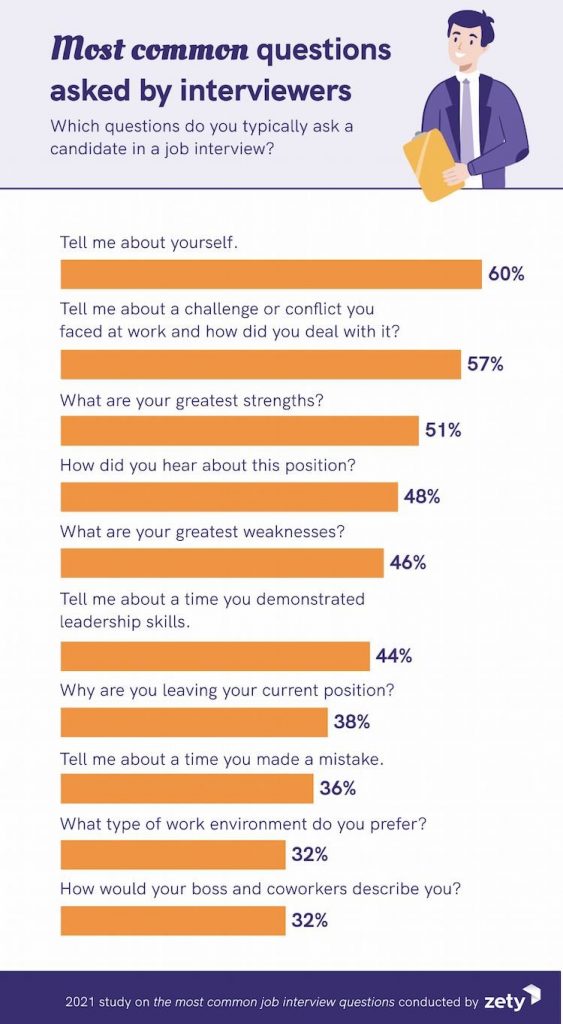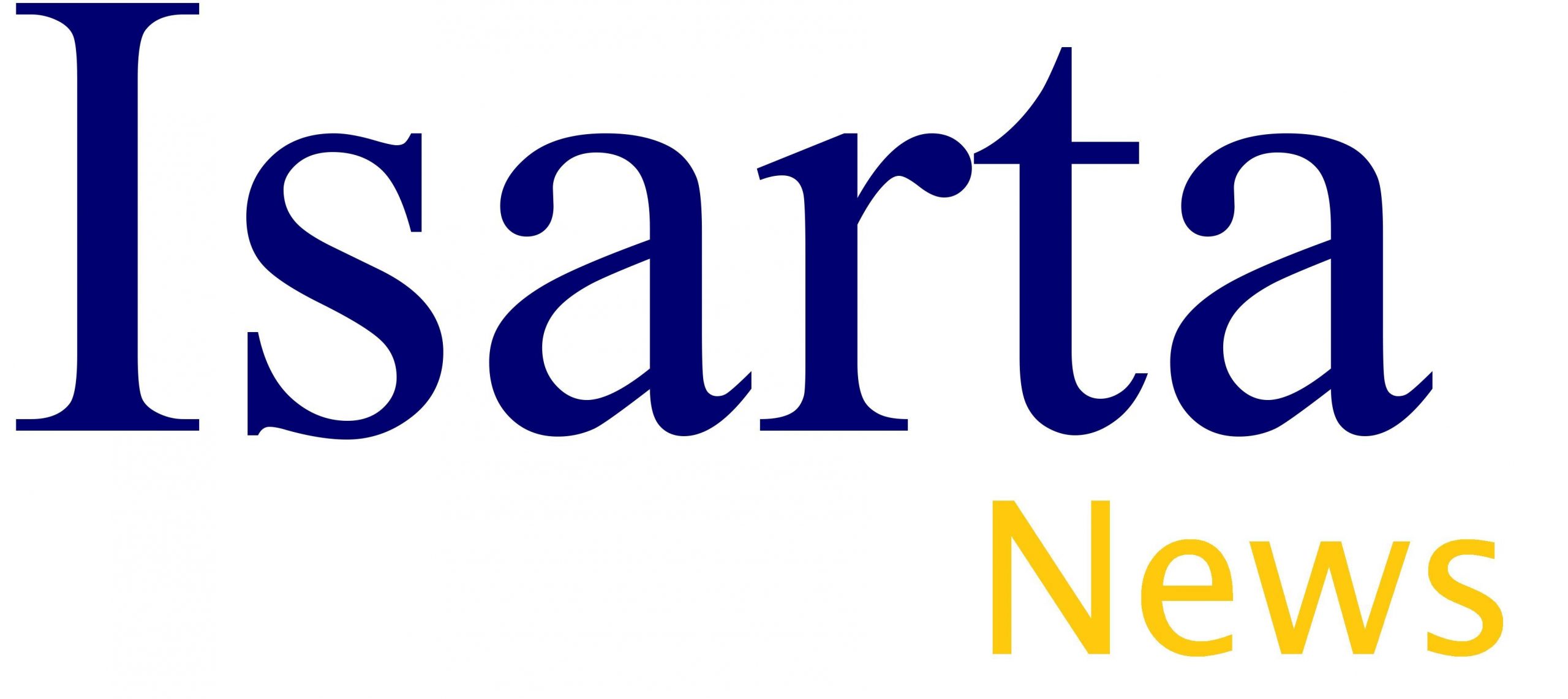Last April, the Zety website conducted a survey of 500 managers to find out their most frequently asked questions during interviews. Based on the results, it is understood that the traditional core issues remain the same, still in 2021 (what are the strengths, weaknesses, challenges overcome, etc.). Here are some answers or strategies to shine in an interview.
1- “Tell me about yourself” (60%)
This question goes without saying in the context of an initial meeting. However, it can still destabilize, because it is so broad. Where to begin? Here, the idea is not to make a complete genealogy, but rather to choose the elements of your journey that gives the portrait you want to communicate to the potential employer.
To make an impact, it is good to clarify your message. What key elements do you want the interviewer to remember? (2 or 3) You can do the exercise of defining yourself in one sentence: I am a [profession, level of experience], specialized in X field, and I stand out by (1-2 strong personality traits, supported by concrete examples).
2- “Tell me about a challenge or conflict you faced at work and how did you deal with it?” (57%)
If you go through the ten most frequently asked questions in the Zety survey (see the end of the article), you will find that many begin with “tell me”. This involves “telling” a story that happened to you. When telling a story, it is useful to familiarize yourself with storytelling techniques, such as the S.T.A.R. method. This allows you to structure your story.
In relation to the issue itself (tell us about a challenge…), you will need to think about a challenge or conflict that highlights the qualities and traits you want to showcase. If you are a “persistent” person, describe an event that demonstrates your perseverance.
3- “What is your greatest strength?” (51%)
Before you choose your greatest strength – the one you want to showcase in the interview – it is important to ask yourself how this strength is useful to the job you are after.
You will then need to find professional experiences from your past, demonstrating that you do have that strength.
4- “How did you hear about this position?” (48%)
Here, the question can be taken to the first degree: how did we become aware of the posting? On LinkedIn, through an acquaintance, a colleague, etc. However, there is an opportunity to answer a broader question, which is: how did you hear about yourself, what interests you in our company and what prompted you to apply?
People like to hear about themselves; as a candidate, you have the opportunity to show that you know the company and its industry.
5- “What is your greatest weakness?” (46%)
No one likes to answer that uncomfortable question. However, it is worth putting yourself in the shoes of a recruiter for a moment to understand the real meaning of the question. The goal is usually not so much to take a candidate in default as to measure their capacity for introspection.
“I appreciate and respect any honest candidate who points to an area that requires improvement, explains how it will not prevent them from doing the job and how they are working on this flaw”, explains John Hannaway, a former recruiter in an article on the subject.
Once again, the best way to prepare for this question is to retrace the initiatives taken to address a weakness or a flaw.
Have a good interview preparation!





